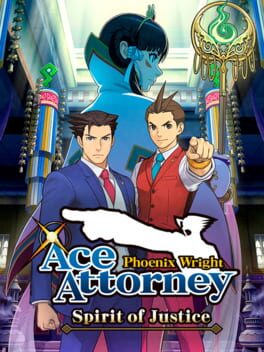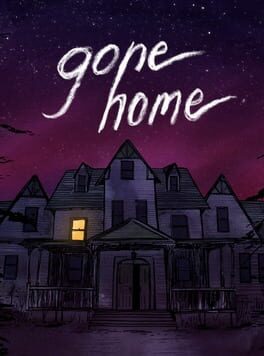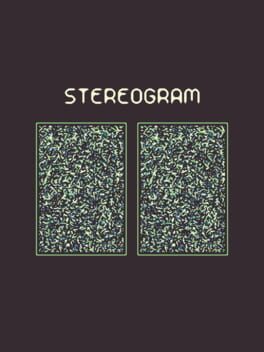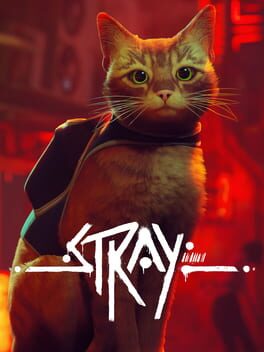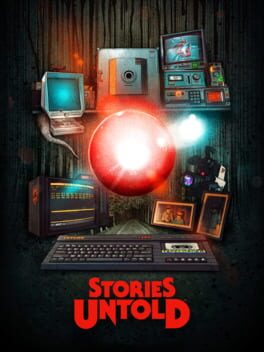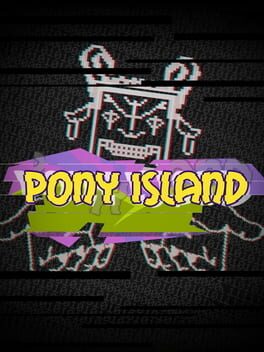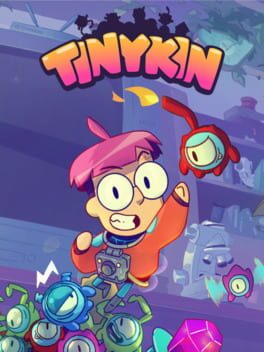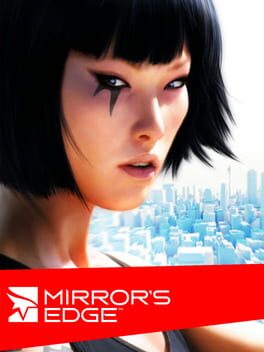chandler05
BACKER
2024
More Portal can't really ever be a bad thing. Portal: Revolution is pretty good. Even if none of the puzzles felt very difficult, the general puzzle design was honestly pretty good, especially with the new mechanics. However, towards the end of the game, I started to realize that a couple of puzzle concepts were very overused throughout the various areas of the game.
The voice acting and writing weren't terrible, but it did occasionally make me wish I had some way of muting the voices. The story was oftentimes a beat-for-beat rehashing of Portal 2's story, which kinda detracted from the whole thing.
Overall, not a bad game, and more than anything it proves the enduring appeal and satisfaction of thinking with portals.
The voice acting and writing weren't terrible, but it did occasionally make me wish I had some way of muting the voices. The story was oftentimes a beat-for-beat rehashing of Portal 2's story, which kinda detracted from the whole thing.
Overall, not a bad game, and more than anything it proves the enduring appeal and satisfaction of thinking with portals.
I will start by saying that I enjoyed this one a bit more OVERALL than the previous game in the series, Dual Destinies. Spirit of Justice successfully provided a more complete Ace Attorney package than Dual Destinies had. Despite this, it still comes nowhere near the quality and intrigue of the first four games in the series.
The story in Kurain is a lot more intriguing than the strange story that was all over the place in Dual Destinies. However, a lot of Spirit of Justice, especially as it pertains to Apollo, seems like it was just shoehorned in to move the plot along. The final case is fine, but in my opinion the weakest of any of the mainline games. Perhaps playing this series for six games now has made me numb to the twists and turns that the team loves to employ, but every final case so far has without fail made me gasp audibly at some of the twists, until this one. Spirit of Justice is solid in execution, but fails to bring any phenomenal ideas to the mix. Even the Divination Seance, which I loved, failed to make the game any more interesting than a four-star rating.
The story in Kurain is a lot more intriguing than the strange story that was all over the place in Dual Destinies. However, a lot of Spirit of Justice, especially as it pertains to Apollo, seems like it was just shoehorned in to move the plot along. The final case is fine, but in my opinion the weakest of any of the mainline games. Perhaps playing this series for six games now has made me numb to the twists and turns that the team loves to employ, but every final case so far has without fail made me gasp audibly at some of the twists, until this one. Spirit of Justice is solid in execution, but fails to bring any phenomenal ideas to the mix. Even the Divination Seance, which I loved, failed to make the game any more interesting than a four-star rating.
I knew I was going to be conflicted on this game from the get go, seeing as it is a pretty drastic departure from the originals. Having just recently begun my Ace Attorney marathon on the 3DS, I had up to this point been absolutely loving the series. The first and second games did an excellent job at hooking me, and Trials and Tribulations was a phenomenal wrap up of the first trilogy, and has entered into my list of my top ten favorite games ever. I kept my expectations low for Apollo Justice, as I wasn’t sure how it would be going into a new trilogy, but I was quite pleasantly surprised by the new systems and characters that were introduced. Dual Destinies doesn’t really move in a direction I expected (or enjoyed too much).
The first case immediately caught my attention with a fantastic opening scene and I was hopeful for what was to come. That was, until the animated cutscenes were over and I saw the frankly ugly 3D models of Phoenix and Apollo. I was shocked by how quickly Phoenix was brought back into the game, and how bad at lawyering he was considering his role in Apollo Justice. I get that this was the tutorial case and they needed some way to reintroduce lawyering to the player, but why does he keep that persona for the entire game? Him and all of the other main characters act more helpless than any protagonist of the previous games, complaining and giving up almost immediately at the first sight of trouble. And to what end? Well these grinding personalities of the main cast lead directly into my second big complaint about the game.
While the other Ace Attorney games maintained quite a good balance of difficulty in deductions the games required you to make, Dual Destinies feels like it removes that balance and sticks a funnel in its place, directly leading you into the answer. The game takes away every opportunity for you to feel smart. Firstly, it removes the ability to examine an area for clues until you’re explicitly told to do so. Gone are the past abilities to stumble upon important clues by accident and feel like a genius for doing so. The game feels incredibly linear compared to past entries, because they try to forcefully move you into the next room or tell you exactly where to go every single step of the game. And the deductions the game requires you to make are little to nothing. Frequently I’ll make a realization and deduction on my own about a case, and get very excited to present the evidence, only for Phoenix to come in like an idiot and say nearly exactly what I’ve deduced out loud, and then presenting me with the frustratingly simple choice to pick a conclusion that matches exactly what he just said. And it doesn’t help that the steps in the case feel obtuse even for Ace Attorney standards. The characters tiptoe right up to the solution, mere millimeters away from the answer, and then they look right at you and ask for your opinion, like it's not incredibly obvious.
It might seem strange for me to say after all of that that I don’t even hate this game. I found some of the cases (particularly Academy) pretty enjoyable, (a lot of people raved about the DLC case, but I didn’t find it too interesting) and some of the characters (particularly the main villain) weren’t terrible either. The last case was quite good, being almost solely responsible for my four star rating of the game, with some actually shocking and interesting twists thrown into the mix. Many of the quality of life changes that are introduced into the formula feel great as well. Athena’s methods of deduction with Widget fit in quite nicely as well. At its core it is still a pretty good Ace Attorney game, but I was always wishing there was something more. I wished that there would be an interesting case with twists and turns for me to figure out myself, but nothing ever came. After researching this game further, discovering that the development team was completely changed from the original one for Dual Destinies made a lot of sense, considering the drop in quality from previous entries. I have a tendency not to stick with games I don’t like, but I did stick with and complete this one, and I will be playing Spirit of Justice as well, so I obviously did enjoy the game at various parts, enough to give the game four stars. But unless you’re a die-hard Ace Attorney fan, I can’t really recommend this one for all of its frustrating aspects.
The first case immediately caught my attention with a fantastic opening scene and I was hopeful for what was to come. That was, until the animated cutscenes were over and I saw the frankly ugly 3D models of Phoenix and Apollo. I was shocked by how quickly Phoenix was brought back into the game, and how bad at lawyering he was considering his role in Apollo Justice. I get that this was the tutorial case and they needed some way to reintroduce lawyering to the player, but why does he keep that persona for the entire game? Him and all of the other main characters act more helpless than any protagonist of the previous games, complaining and giving up almost immediately at the first sight of trouble. And to what end? Well these grinding personalities of the main cast lead directly into my second big complaint about the game.
While the other Ace Attorney games maintained quite a good balance of difficulty in deductions the games required you to make, Dual Destinies feels like it removes that balance and sticks a funnel in its place, directly leading you into the answer. The game takes away every opportunity for you to feel smart. Firstly, it removes the ability to examine an area for clues until you’re explicitly told to do so. Gone are the past abilities to stumble upon important clues by accident and feel like a genius for doing so. The game feels incredibly linear compared to past entries, because they try to forcefully move you into the next room or tell you exactly where to go every single step of the game. And the deductions the game requires you to make are little to nothing. Frequently I’ll make a realization and deduction on my own about a case, and get very excited to present the evidence, only for Phoenix to come in like an idiot and say nearly exactly what I’ve deduced out loud, and then presenting me with the frustratingly simple choice to pick a conclusion that matches exactly what he just said. And it doesn’t help that the steps in the case feel obtuse even for Ace Attorney standards. The characters tiptoe right up to the solution, mere millimeters away from the answer, and then they look right at you and ask for your opinion, like it's not incredibly obvious.
It might seem strange for me to say after all of that that I don’t even hate this game. I found some of the cases (particularly Academy) pretty enjoyable, (a lot of people raved about the DLC case, but I didn’t find it too interesting) and some of the characters (particularly the main villain) weren’t terrible either. The last case was quite good, being almost solely responsible for my four star rating of the game, with some actually shocking and interesting twists thrown into the mix. Many of the quality of life changes that are introduced into the formula feel great as well. Athena’s methods of deduction with Widget fit in quite nicely as well. At its core it is still a pretty good Ace Attorney game, but I was always wishing there was something more. I wished that there would be an interesting case with twists and turns for me to figure out myself, but nothing ever came. After researching this game further, discovering that the development team was completely changed from the original one for Dual Destinies made a lot of sense, considering the drop in quality from previous entries. I have a tendency not to stick with games I don’t like, but I did stick with and complete this one, and I will be playing Spirit of Justice as well, so I obviously did enjoy the game at various parts, enough to give the game four stars. But unless you’re a die-hard Ace Attorney fan, I can’t really recommend this one for all of its frustrating aspects.
2013
I usually really enjoy walking simulator games like Gone Home. I bought this one precisely for that reason. However, while Gone Home is a good game, it never reaches the highs of other games with its same level of praise.
Because a walking simulator's story is so focal, its quality is essentially the quality of the game. Gone Home starts off very suspenseful and intriguing, but as it goes on it loses these things and turns in multiple predictable ways. It's unfortunate because the story feels strong at the beginning, but as more is uncovered you start to understand that the story here isn't too crazy or shocking.
From the beginning, the main story with Sam seems to be the only thing "wrong" with the family, but by the end, you realize it's the only thing that went "right". It's not bad, just strange for a game in a genre so heavily focused on delivering twists and unexpected stories that keep me interested.
Because a walking simulator's story is so focal, its quality is essentially the quality of the game. Gone Home starts off very suspenseful and intriguing, but as it goes on it loses these things and turns in multiple predictable ways. It's unfortunate because the story feels strong at the beginning, but as more is uncovered you start to understand that the story here isn't too crazy or shocking.
From the beginning, the main story with Sam seems to be the only thing "wrong" with the family, but by the end, you realize it's the only thing that went "right". It's not bad, just strange for a game in a genre so heavily focused on delivering twists and unexpected stories that keep me interested.
2023
2023
Absolutely loved sitting back and enjoying the serenity of Terra Nil. I played it on Android, and I would often find myself putting both headphones in and taking a break by building ecosystems in this beautiful game. Reintroducing flora and fauna was challenging sometimes, but very rewarding. The only things that really hold this game back are the bugs and performance issues that honestly plagued the mobile port when I played it.
2022
Stray is a beautiful but unfortunately boring experience.
It's good for what it is, don't get me wrong. The graphics are phenominal and the world is just superb. The characters all feel alive and everything in those aspects of the game are perfect. However, in the aspect of gameplay, there is not much.
Being a cat in a video game definitely sounds interesting on paper. Stray did it well, but somehow also not very well. There's unfortunately not much to it towards the end of the game, other than fetch quests around these amazing environments. The beginning of the game proposes some fun and interesting gameplay, but it doesn't go aware and doesn't really feel all that rewarding. It's too bad, because this game really is amazing-looking.
It's good for what it is, don't get me wrong. The graphics are phenominal and the world is just superb. The characters all feel alive and everything in those aspects of the game are perfect. However, in the aspect of gameplay, there is not much.
Being a cat in a video game definitely sounds interesting on paper. Stray did it well, but somehow also not very well. There's unfortunately not much to it towards the end of the game, other than fetch quests around these amazing environments. The beginning of the game proposes some fun and interesting gameplay, but it doesn't go aware and doesn't really feel all that rewarding. It's too bad, because this game really is amazing-looking.
2017
I think the first episode of the game is honestly the best part.
"The House Abandon" (the first episode) is what Stories Untold should have been. It's wonderfully creepy, has a great unsettling atmosphere, and concluded in a way that I enjoyed and didn't feel too anticlimactic. It had small twists and slight changes of detail between actions that I really loved, and there was a sense of horror throughout. The one issue I had with the chapter is the fact that the game's text inputs required very specific verbiage, and I often ended up stuck, looking to a walkthrough to see that I just needed to change one word in my input to progress.
The 2nd and 3rd episodes were not nearly as compelling. They each had a good mechanic that setup the episode, but they both threw that mechanic away about 3/4ths through the episode, whereas the first chapter reintroduced the same initial mechanic in a new way. These two chapters weren't as creepy as the first, and ended in unsatisfying ways, which sucks because they could have been so much better. Overall they weren't terrible, but they felt almost incomplete.
The final chapter does well in recycling gameplay and presenting new scenarios and I really enjoyed this one. It does in fact have a creepy atmosphere and a decently satisfying ending, so this episode was pretty good as well.
Overall it was a decent game that unfortunately leaves more to be desired from its horror and gameplay in certain places.
"The House Abandon" (the first episode) is what Stories Untold should have been. It's wonderfully creepy, has a great unsettling atmosphere, and concluded in a way that I enjoyed and didn't feel too anticlimactic. It had small twists and slight changes of detail between actions that I really loved, and there was a sense of horror throughout. The one issue I had with the chapter is the fact that the game's text inputs required very specific verbiage, and I often ended up stuck, looking to a walkthrough to see that I just needed to change one word in my input to progress.
The 2nd and 3rd episodes were not nearly as compelling. They each had a good mechanic that setup the episode, but they both threw that mechanic away about 3/4ths through the episode, whereas the first chapter reintroduced the same initial mechanic in a new way. These two chapters weren't as creepy as the first, and ended in unsatisfying ways, which sucks because they could have been so much better. Overall they weren't terrible, but they felt almost incomplete.
The final chapter does well in recycling gameplay and presenting new scenarios and I really enjoyed this one. It does in fact have a creepy atmosphere and a decently satisfying ending, so this episode was pretty good as well.
Overall it was a decent game that unfortunately leaves more to be desired from its horror and gameplay in certain places.
2022
Signalis does horror very well. I don't play too many horror games, but I can say that I really enjoyed this one...mostly.
Signalis excels in it's art direction and it's sound design. Frequently the sound was the primary reason for my fear during many sections of the game. Many parts relied on rapidly switching images and loud sounds, using anticipation to a great benefit. This was easily the best part of Signalis.
The gameplay of Signalis is pretty decent, but is rather lacking in some areas. For one, the AI of the enemies is super easy to avoid, and I found myself dodging them later in the game rather than fighting them. The puzzles are for the most part pretty excellent. Never anything too hard, but nothing too simple either. This breaks down a bit towards the end of the game where it's less puzzles more items.
If I had one thing I didn't like about Signalis, it would be it's length. This may be a bit spoilery, but when I reached the "ending" of the game, I was a bit relieved and worn out. When I found out that there was more, I gave up and decided I was fine without witnessing the "true ending" of Signalis. The game dragged on a little too long, and I think the extra ending area of the game was overdone and I didn't actually complete it.
Signalis was very good, easily one of the best horror games of the year, but I can't help but wish it was a little bit shorter or at least didn't fake me out with an ending. I highly recommend this to any fan of horror games.
Update 10/17/23: In hindsight, this game was pretty fantastic, bumped up to 4 stars.
Signalis excels in it's art direction and it's sound design. Frequently the sound was the primary reason for my fear during many sections of the game. Many parts relied on rapidly switching images and loud sounds, using anticipation to a great benefit. This was easily the best part of Signalis.
The gameplay of Signalis is pretty decent, but is rather lacking in some areas. For one, the AI of the enemies is super easy to avoid, and I found myself dodging them later in the game rather than fighting them. The puzzles are for the most part pretty excellent. Never anything too hard, but nothing too simple either. This breaks down a bit towards the end of the game where it's less puzzles more items.
If I had one thing I didn't like about Signalis, it would be it's length. This may be a bit spoilery, but when I reached the "ending" of the game, I was a bit relieved and worn out. When I found out that there was more, I gave up and decided I was fine without witnessing the "true ending" of Signalis. The game dragged on a little too long, and I think the extra ending area of the game was overdone and I didn't actually complete it.
Signalis was very good, easily one of the best horror games of the year, but I can't help but wish it was a little bit shorter or at least didn't fake me out with an ending. I highly recommend this to any fan of horror games.
Update 10/17/23: In hindsight, this game was pretty fantastic, bumped up to 4 stars.
2016
Pony Island is pretty interesting. I don't really know what else to say about it.
The gameplay of the actual "Pony Island" part of the experience is not really all that fun. It's tedious, repetitive, and a bit boring at times, but it's necessary for the game to progress.
The puzzle solving aspect is a lot better, and the twists the game introduces on top of that system are really good.
Finally, everything else the game throws at you is phenomenal. There's not a lot I can say about this part of the game without spoiling it, but suffice it to say that this is the part of the game I stayed for. I especially one part of the game at the very end, where it uses clever tricks to confuse you.
All in all, Pony Island is a pretty good game, but is dragged down by its insistence on making you play the actual game.
The gameplay of the actual "Pony Island" part of the experience is not really all that fun. It's tedious, repetitive, and a bit boring at times, but it's necessary for the game to progress.
The puzzle solving aspect is a lot better, and the twists the game introduces on top of that system are really good.
Finally, everything else the game throws at you is phenomenal. There's not a lot I can say about this part of the game without spoiling it, but suffice it to say that this is the part of the game I stayed for. I especially one part of the game at the very end, where it uses clever tricks to confuse you.
All in all, Pony Island is a pretty good game, but is dragged down by its insistence on making you play the actual game.
2022
Before I played it, I wasn't quite sure about this game. But I can now say this is one of the better games released this year. This is a Pikmin-like 3D platformer with an immensely charming visual style of 2D sprites mixed with the 3D world. The movement feels excellent and works in all of the best ways possible. The Tinykin feel similar but different enough from Pikmin to make Tinykin feel completely separate from the other series. The platforming was excellent and the worlds are very cleverly designed. I wasn't bored at any point playing this game and I was able to grab all of the collectibles and achievements as well! I highly recommend this game to fans of platformers of any kind, and it is a true treat for fans of collect-a-thons.
2008
Mirror's Edge is a fantastic but different take on the "FPS" genre. The gameplay itself was very good, with the possible exception of combat. While there were issues with the audio at times, and the story wasn't all that interesting, Mirror's Edge's gameplay more than makes up for it and makes this game a must-play for parkour or video game enthusiasts.

